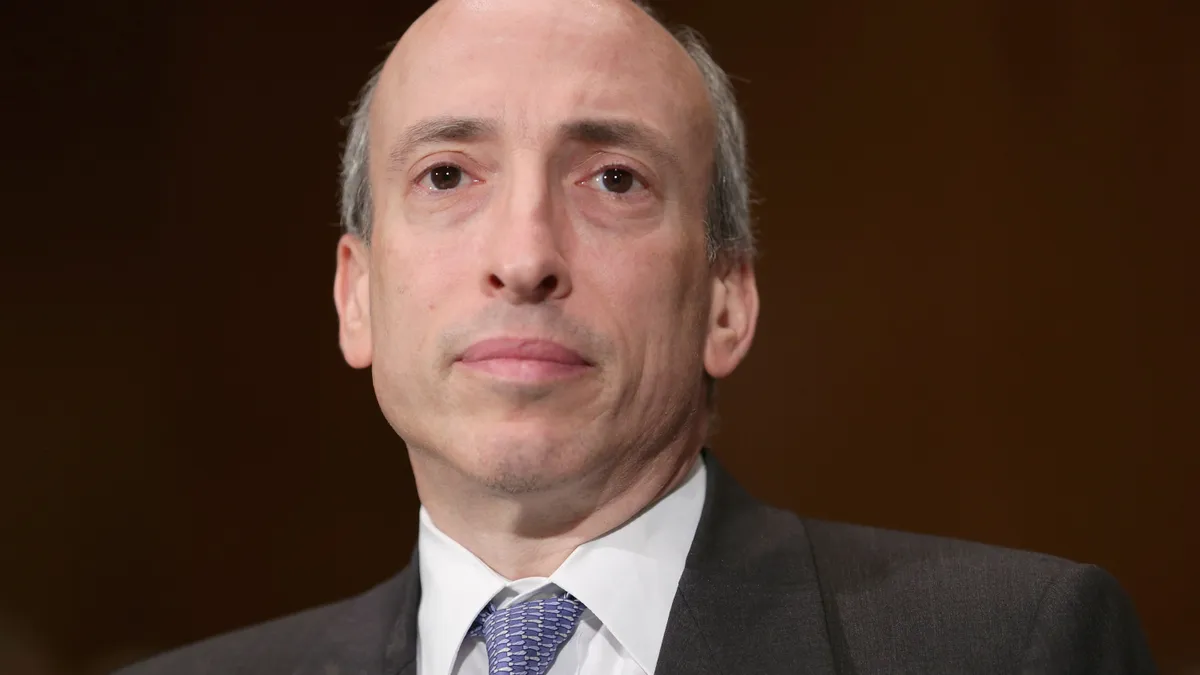Dive Brief:
- The Securities and Exchange Commission (SEC) charged Vale SA, a Brazilian mining company, with making false claims about safety prior to the collapse of its Brumadinho dam in 2019, a disaster in which 270 people were killed.
- The SEC in a complaint filed Thursday alleges that beginning in 2016 Vale manipulated dam safety audits, obtained fraudulent stability certificates and, through its environmental, social and governance (ESG) disclosures, regularly misled governments, communities and investors about the safety of the Brumadinho dam.
- “Vale denies the SEC’s allegations, including the allegation that its disclosures violated U.S. law, and will vigorously defend this case,” Gustavo Duarte Pimenta, the company’s investor relations executive officer, said in a statement.
Dive Insight:
The SEC’s filing against Vale follows its launch in March 2021 of a Climate and ESG Task Force within the Enforcement Division with members drawn from across the agency.
The mandate of the task force is “to identify material gaps or misstatements in issuers’ ESG disclosures, like the false and misleading claims made by Vale,” the SEC said Thursday in its statement.
Since his swearing in as SEC chair a year ago, Gary Gensler has pushed for expanded disclosures by companies concerning the sustainability of their products, services and operations.
Gensler last month proposed that companies follow detailed rules for reporting on climate risk. Among many requirements, companies would need to disclose their greenhouse gas emissions, either from their facilities or through their energy purchases, and obtain independent attestation of their data and estimates.
The SEC in August backed a Nasdaq rule that listed companies include on their boards at least one woman director and someone who is a racial minority or who self-identifies as lesbian, gay, bisexual, transgender or queer. Gensler has also asked staff to propose rules on workforce disclosure, including details on employee diversity.
The SEC, while currently not requiring the filing of ESG reports, says that companies need to issue public statements on the topic that are accurate and not misleading to investors.
"Many investors rely on ESG disclosures like those contained in Vale’s annual sustainability reports and other public filings to make informed investment decisions," SEC Enforcement Division Director Gurbir Grewal said in a statement.
"By allegedly manipulating those disclosures, Vale compounded the social and environmental harm caused by the Brumadinho dam’s tragic collapse and undermined investors’ ability to evaluate the risks posed by Vale’s securities," Grewal said.
The SEC’s complaint, filed in U.S. District Court in Brooklyn, seeks civil penalties including repayment of alleged ill-gotten gains. The dam collapse prompted a decline in Vale’s market value exceeding $4 billion, as well as “immeasurable environmental and social harm,” the SEC said.
Growing pressure by investors, regulators, lawmakers and other stakeholders for adherence to ESG best practices has apparently compelled some companies to exaggerate their efforts to limit their harm to the environment.
Nearly three out of five executives (58%) say their companies engage in “greenwashing” in their sustainability reports, according to a global survey sponsored by Google Cloud.
Thirty-five percent of U.S. executives, and 29% worldwide, agree with the phrase, “my company treats sustainability like a PR stunt,” according to the survey by Harris Poll of 1,491 CFOs and other executives in the C-suite or VP level across 14 markets.
Many executives would “like to see better accountability and action” on sustainability, with 36% of respondents saying that their companies have measurement tools for quantifying sustainability performance and just 17% saying the measures are used to improve outcomes, Google Cloud said.












